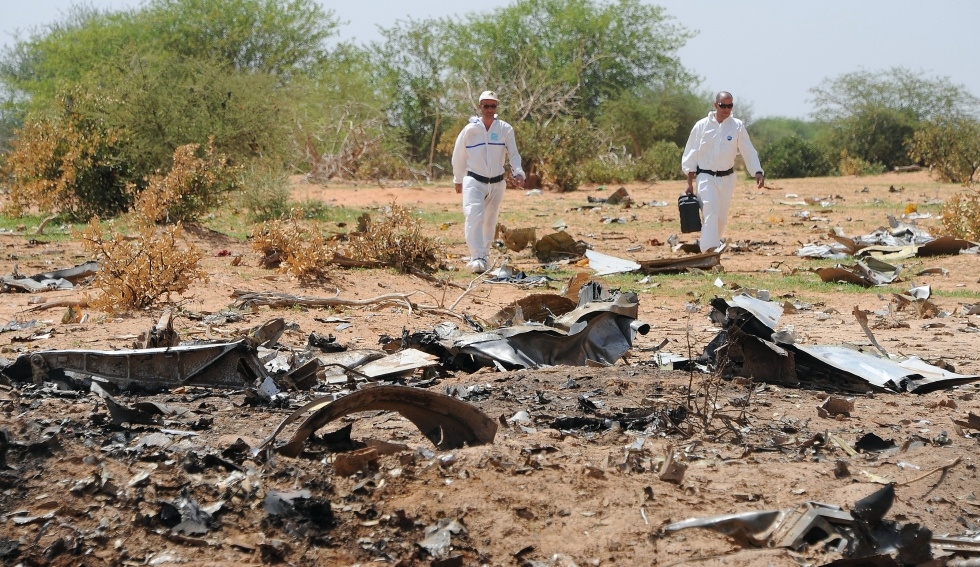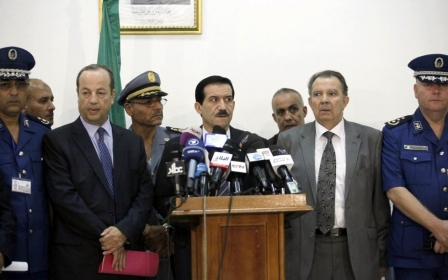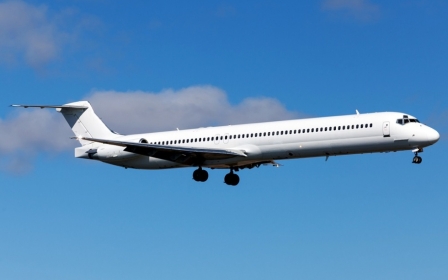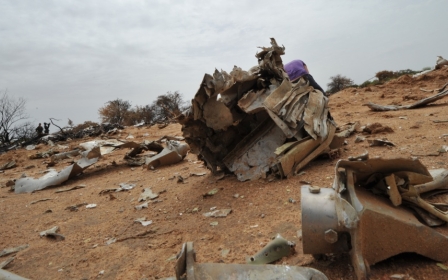Staff on crashed Air Algerie flight complained of work fatigue: Reports

Reports are emerging that a member of the Spanish crew onboard the Air Algerie flight that crashed last week had previously complained of exhaustion due to long hours of work, which he feared could put the safety of the plane at risk.
The plane, which crashed on its way from Burkina Faso to Algiers when it came down last week killing 118 people, was operated by a Spanish company, Swiftair. Swiftair rents out its fleet of 30 planes in a system called "wet-lease". It operates regular passenger flights for firms in Europe, Africa and the Middle East and also rents it services to tour operators and corporations and supplies technical services.
Flight AH5017, which took off early Thursday morning from Ouagadougou in neighbouring Burkina Faso bound for Algiers, went missing amid reports of heavy storms.
There were 54 French nationals on the jet, alongside 23 Burkinabe, and nationals of Lebanon, Algeria, Spain, Canada, Germany and Luxembourg.
An email from one steward to his boss at Swiftair a week before the fatal crash, is quoted on Spanish news website, el economista. The steward says that 12-plus hour days are commonly worked and this results in "difficulty maintaining focus during take off and landing". He adds that the delays during Ramadan days can easily become longer.
It is difficult to establish a link between fatigue and the recent crash, says Agustin Guzman, a spokesperson from Spanish pilots trade union, Sepla, however Sepla has been denouncing in the past year the deteroriation of working conditions in the flight industry at European level.
The wet-lease system is broadly used all over Europe and does not compromise flight security, says Alvaro Gammichia, security expert with Spanish pilots trade union Sepla. Swiftair had valid flight certificates and had recently undergone an inspection in Marseille, France, said Gammichia.
The likely cause of the crash points to an accident caused by adverse weather, as there was a severe sandstorm in the area at the time. French foreign minister Laurent Fabius said "the only certain thing is that the pilot asked air traffic controllers for a route change, and later asked for permission to turn around”. Right after that, the flight went off the radar screens.
No intact bodies recovered from crash site
Dressed in protective white overalls, French experts sift through the debris of the Air Algerie plane which is said to have essentially disintegrated over the northern Mali desert.
Despite days of meticulous searching across the shifting sands of the remote crash site at the southern edge of the Sahara desert, they have yet to see a single intact body.
The nearest town in the desolate landscape where the plane came down is Gossi, a settlement of 25,000 people centred around a cattle market, some 150 kilometres (90 miles) from the regional capital, Gao.
In scorching heat, the experts - gendarmes, police and a team from France's plane crash investigation agency BEA - are combing the moonscape one square metre at a time.
In addition to body parts or items that could help identify the victims, experts are searching for clues that could help explain why the aircraft was obliterated.
"We realised right away that we would have to go straight to DNA analysis," said Colonel Patrick Touron, deputy head of the French gendarmerie's Criminal Research Institute.
"We saw that we had no intact bodies... just very badly broken bodies which weren't identifiable using the classic forensic methods, dental records and fingerprints."
An international team of investigators is backed up by several hundred soldiers - French, Malians and troops in MINUSMA, the UN peacekeeping mission in Mali - who have secured the site.
"Our job is to provide logistical support to French investigators, and their Malian, Algerian and Spanish colleagues," French Chief of Staff General Pierre de Villiers told AFP in Paris.
Searing heat threatens evidence
Temperatures in northern Mali can exceed 40 degrees Celsius (104 Farenheit) in July and an urgent task for the investigators is protecting evidence from the sweltering heat.
"The molecular biology techniques require meticuluous sample preservation. Time here is against us. It is very hot and the samples become degraded very quickly," said Touron.
Samples lifted from the debris are taken to two white tents marked National Gendarmerie.
In another tent, experts retrieve samples from victims' relatives who have been transported from Ouagadougou.
"It is imperative that we get the DNA of relatives so that we can then try to identify a brother, a father, a sister... The more information we have, the more rapid will be the identification," Touron told AFP.
Sandwidi Rodrigue, who lost a parent in the accident, was able to speak to experts on the crash site.
"They told us they have recovered hundreds of parts of victims. But all that could be the remains of two or three people," he said.
Bassindua Laurent, whose eldest brother and a friend were killed in the crash, left a bouquet of flowers on the periphery of the secure area and broke down, his head in his hands.
He told AFP he would take a mixture of ash and sand from the site, "as a testament to the horror that took place in Gossi".
"This is all that remains of what is most dear to us. We will keep this in our family... I hope from my heart all these people rest in peace," he said.
New MEE newsletter: Jerusalem Dispatch
Sign up to get the latest insights and analysis on Israel-Palestine, alongside Turkey Unpacked and other MEE newsletters
Middle East Eye delivers independent and unrivalled coverage and analysis of the Middle East, North Africa and beyond. To learn more about republishing this content and the associated fees, please fill out this form. More about MEE can be found here.




